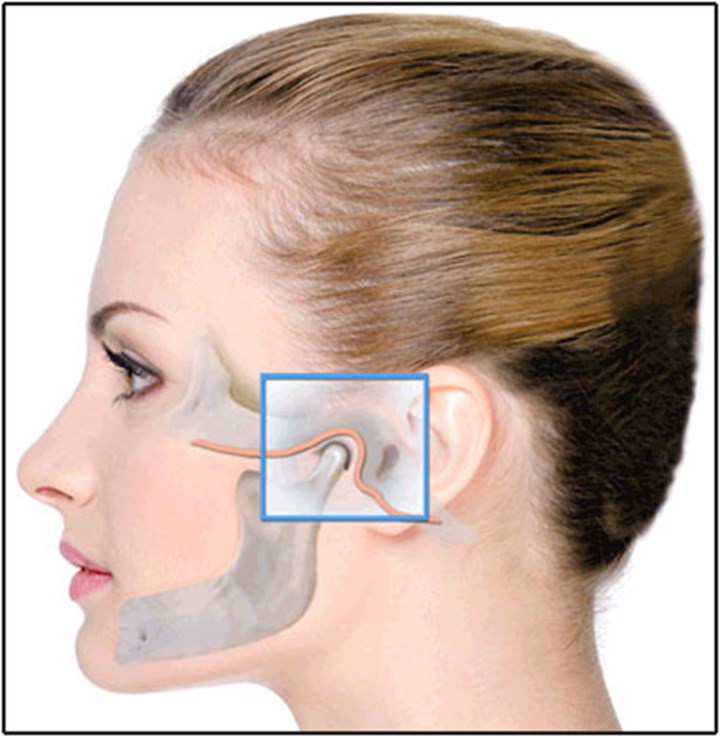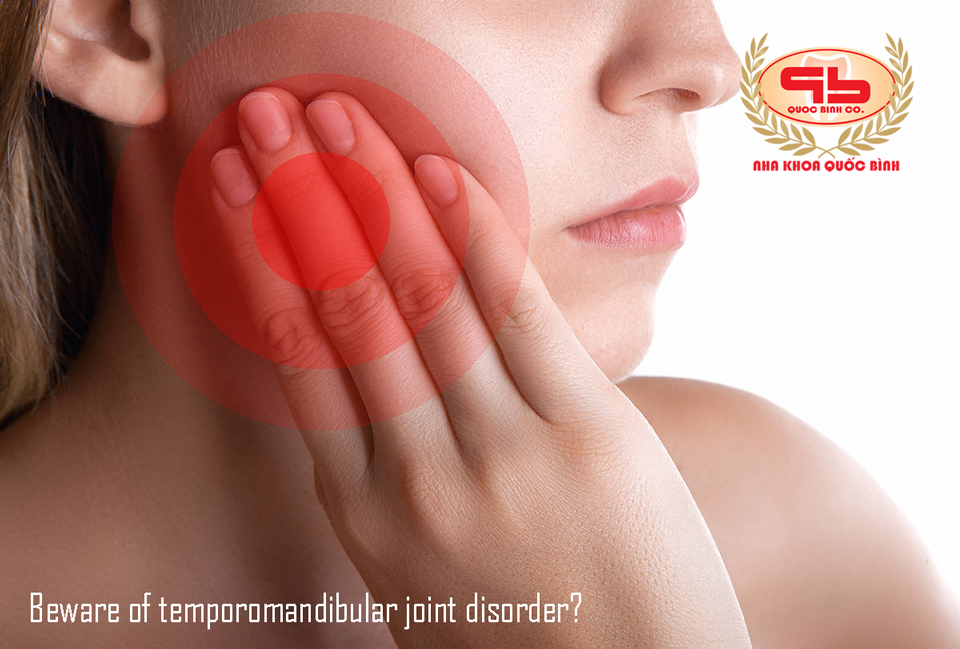Have you ever noticed strange expressions such as yelping when yawning, opening mouth or chewing? Do you have headaches, pain around the ears or stiffness of the joint, difficulty in jaw movement? … It may be signs of temporomandibular joint disorder. And to know the cause – the treatment, we refer to some of the information below.

First, we should know where the temporomandibular joint is located and what function?
This is one of the most complex joints in the body (including jaw muscles, ligaments, cartilage joints and jawbones) located on the sides of the head and front of the ear where the jaw bone meets the skull; functional combination of sliding motion to bring the lower jaw forward or backward, and to move the jaw to both sides.
If there is any reason why this part of the operation is malfunctioning, it will be called a temporomandibular disorder. Also referred to as TMJ (Temporomandibular Joint Syndrome), the description of the upper and lower jaw joint does not work.
The cause of this disorder can be known as follows:
- Arthritis
- Injury to the jaw
- Muscle fatigue due to tightening (grinding teeth)
- Incorrect bite (may be due to missing teeth for a long time without rehabilitation, causing displacement of the adjacent teeth, disturbance of interlinking between teeth, or filling of teeth, or improper dentures movement of uncomfortable jaw)
- Stress factors, nerves
And some cases do not clearly identify the cause.
For more information: http://tuoitre.vn/50-75-dan-so-bi-roi-loan-khop-thai-duong-ham-3686.htm
What are the most obvious manifestations of this syndrome?
- Earache, headache, jaw pain, numbness in the face.
- Biting, chewing difficult, annoying.
- The temporal joint is locked, causing the mouth can not open or close.
- When yawning or opening mouth, eating chewing make noise in the temporal jaw joint area.
Note: There are many signs, symptoms in TMJ overlap with some other diseases. Therefore, if you want to determine if you have a TMJ, you need to be tested and diagnosed by an experienced dentist.
Appropriate screening results (X-rays or MRI) for the jaw bone and oral dental histories, as well as direct clinical examination of the affected area, to detect and limit the underlying causes to this disease.
Treatments:
In some cases, the disorder may disappear without treatment.
But for the most part, the dentist will advise you on some of the following methods (depending on the condition you are experiencing)
- Drug therapy (in medicine) to eliminate spasm and muscle pain.
- Reduce the impact of bad habits such as grinding teeth using plastic jaws separating upper jaw and lower jaw. Avoid compressing between unconscious teeth during sleep. Minimize muscle fatigue after waking, avoiding the damage caused by grinding teeth.
- Adjust the bite joint by taking appropriate measures.
- Release stress factors, or use the massage method to relax the muscles.
In addition to conventional treatments, doctors may perform jaw surgery. However, this method is rarely used, as this is an irreversible method if the results of the surgery are not successful as desired.
So what do we do to prevent temporomandibular joint disorder?
- Do not eat-chew hard food.
- Do not open mouth too large and for long periods of time.
- Chew on both left – right, avoid chewing on one side.
- Orthodontic treatment when the dental disease grows deviated.
- Good oral hygiene avoids gum disease, periodontitis, tooth decay … (they are leading to the risk of tooth loss).
- Restore lost teeth as soon as possible to avoid causing bite defects.
- Eliminate the habit of grinding teeth, biting hard objects. Use specialized tools to regulate function.
Important, you should have a healthy lifestyle, regular dental health care schedule. And, visit to the clinic when there are any signs of persistent pain in the temporomandibular joint, or the signs described above, for experienced doctors to check-up and find the cause for the condition so that appropriate treatment.
Quoc Binh Dental Clinic

